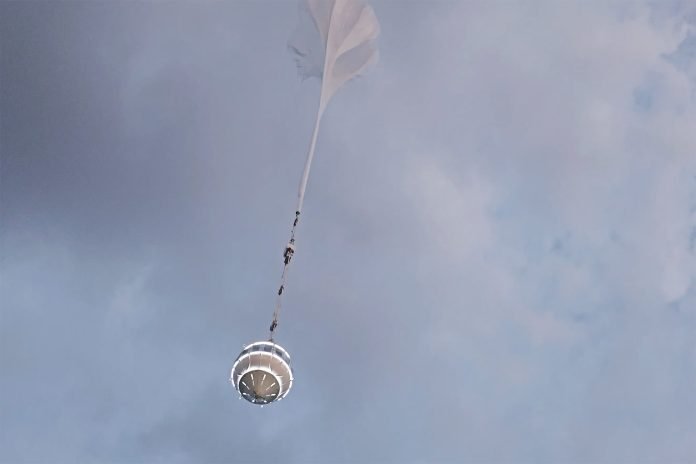Florida-based Space Perspective has made significant strides in its mission to offer commercial sightseeing balloon flights to the edge of outer space. On September 15th, the company launched a test flight using its Neptune-Excelsior capsule, marking a key step towards bringing this ambitious project to fruition.
The test flight reached an altitude of approximately 100,000 feet (30,480 meters), taking it to the outer limits of Earth’s atmosphere. This altitude is significant because it allows passengers to witness the curvature of the Earth and the vast blackness of space, while still remaining within the planet’s atmosphere.
Although this height is not officially in outer space, it brings passengers above 99% of the atmosphere, offering a unique view that few have ever experienced. The SpaceBalloon, filled with hydrogen, and the pressurized Spaceship Neptune capsule, which will carry up to eight passengers, are designed to offer a smooth and gentle journey to these extreme heights.
A unique sightseeing experience
The planned commercial flights will last a total of six hours. The ascent will take approximately two hours, giving passengers time to gradually witness the breathtaking views as they rise. Upon reaching the target altitude, there will be two hours set aside for sightseeing, allowing passengers ample time to soak in the panoramic views of Earth. Finally, the descent will take another two hours, with gas being carefully released from the balloon to ensure a controlled, gradual return to the surface.
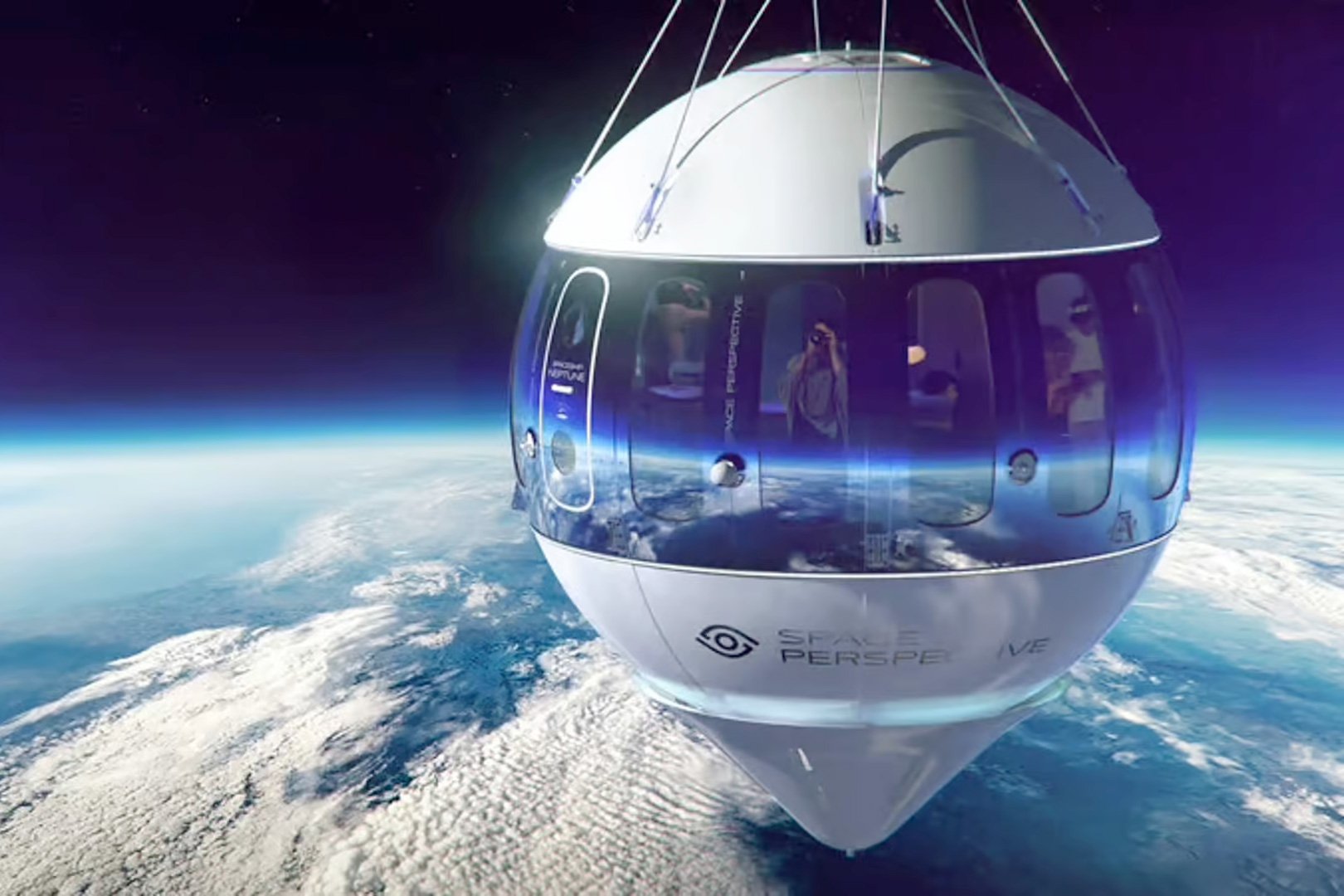
While this concept may sound like something out of a science fiction novel, Space Perspective has taken tangible steps toward making this vision a reality. The company first announced its plans four years ago, and over time has developed and tested various aspects of its system. Last year, Space Perspective unveiled a test version of its capsule, the Neptune-Excelsior, which is representative of the final commercial model. However, this prototype lacked the luxurious lounge interior that will be part of the final design for paying customers.
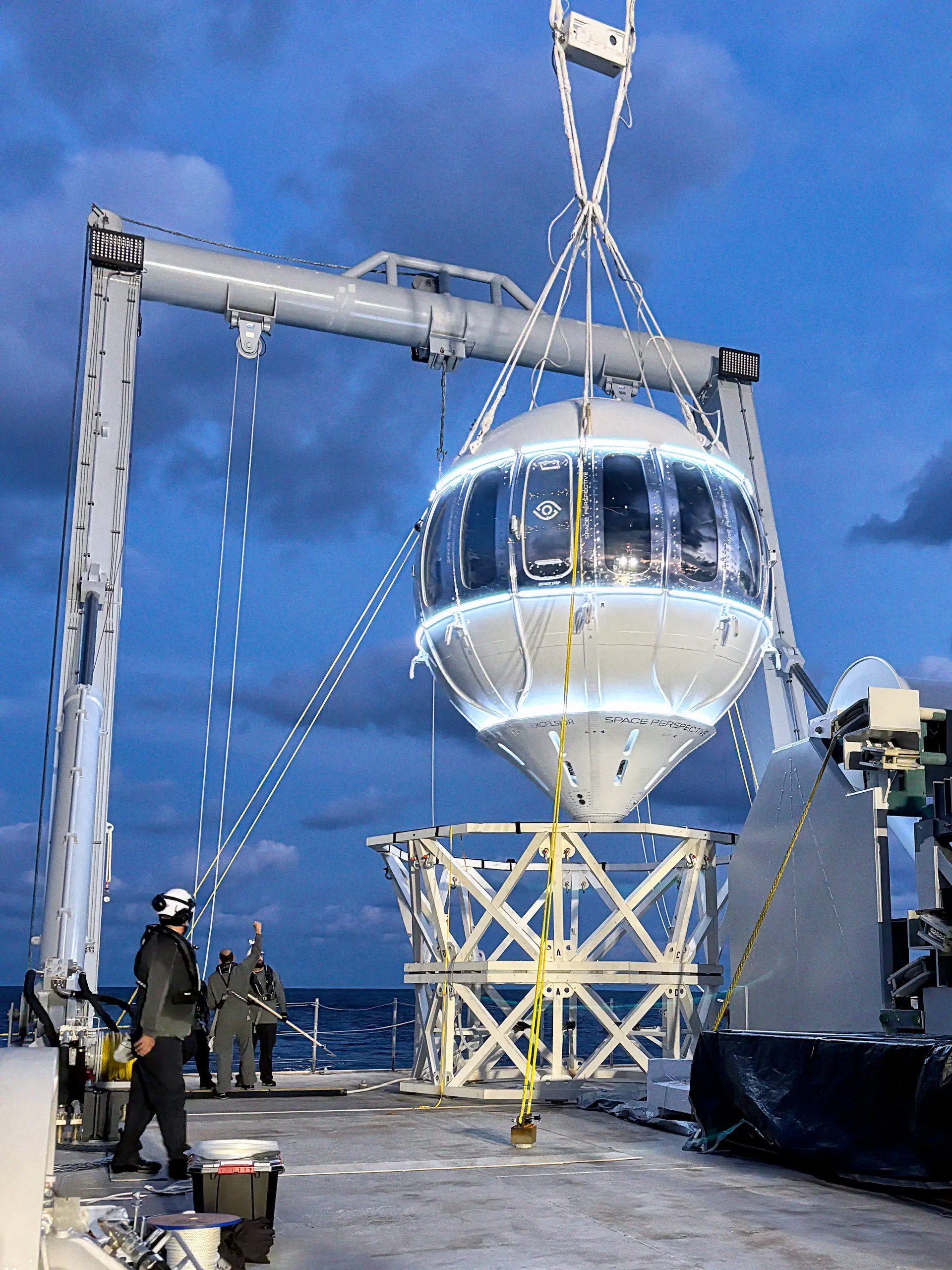
The successful test flight
The recent test flight is a crucial development in the project. Launched from the deck of Space Perspective’s Marine Spaceport Voyager, a specially designed ship, the uncrewed Neptune-Excelsior capsule ascended to the target altitude of 100,000 feet and safely returned to the ocean with a splashdown landing. The Marine Spaceport Voyager is also responsible for retrieving the capsule and balloon from the ocean post-splashdown, marking an innovative approach to launching and recovering spacecraft.
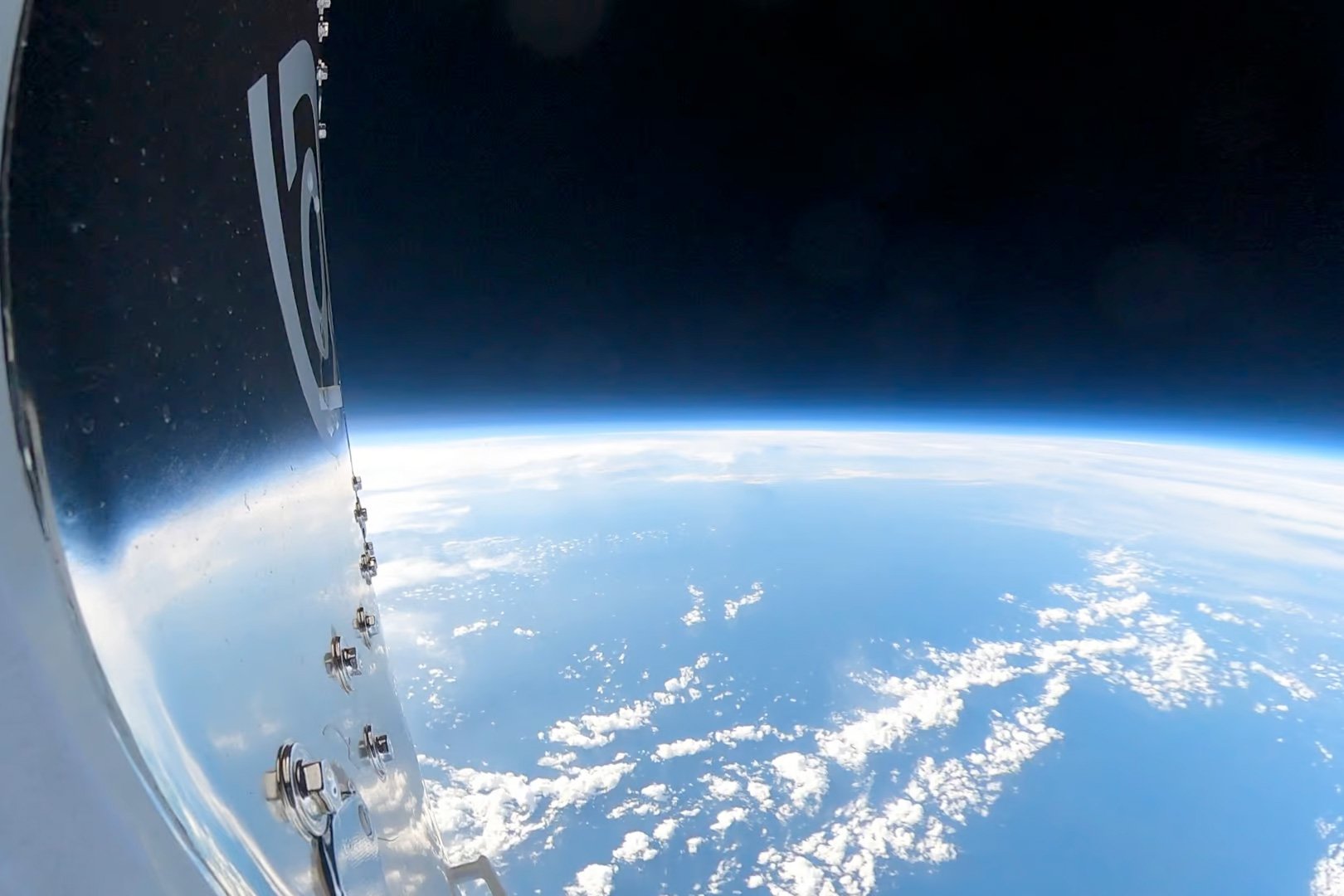
This test flight marked several firsts for the company. The flight was the debut of a four-roller mechanism, which was used to lift the balloon off the deck of the ship before liftoff. Additionally, it allowed Space Perspective to test the thermal control system, which is designed to keep passengers comfortable at such extreme altitudes, as well as the hydrogen lift and descent technology used to manage the flight. The company’s mission control center also had the opportunity to test its proprietary software and communication systems, all of which will play a vital role in future commercial flights.
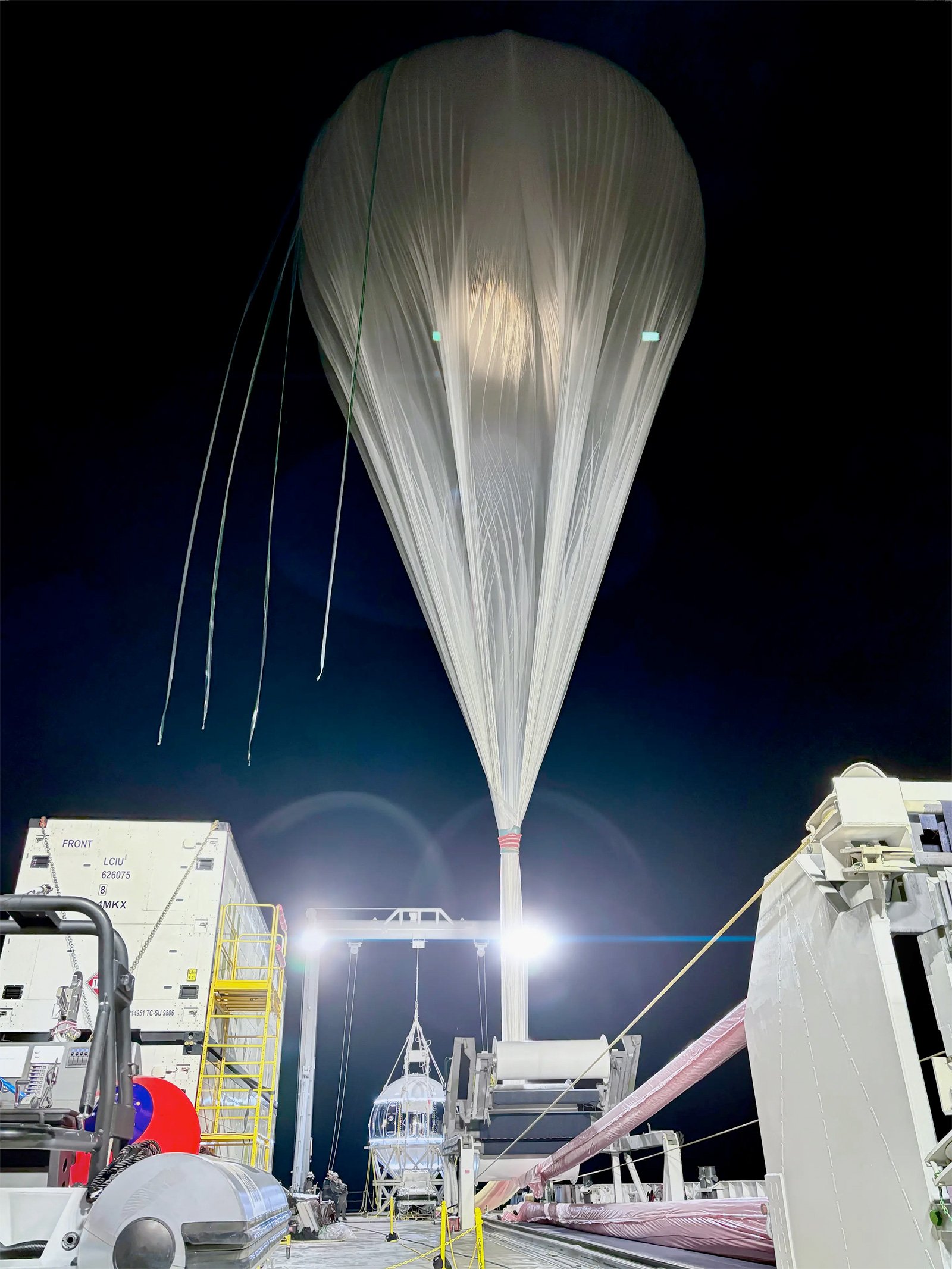
What’s next?
Space Perspective plans to conduct crewed test flights in the near future, with commercial flights scheduled to begin in 2025. Passengers aboard these flights will have the opportunity to experience the thrill of viewing Earth from the edge of space, while enjoying a comfortable, pressurized environment inside the Spaceship Neptune capsule.
For those interested in this once-in-a-lifetime experience, tickets for a flight aboard Spaceship Neptune are priced at $125,000. While the cost is steep, it represents a unique opportunity for space tourism, offering an experience that is accessible to more people than traditional spaceflights. As the company continues to refine its technology and operations, more individuals may get the chance to experience the majesty of Earth from near-space.
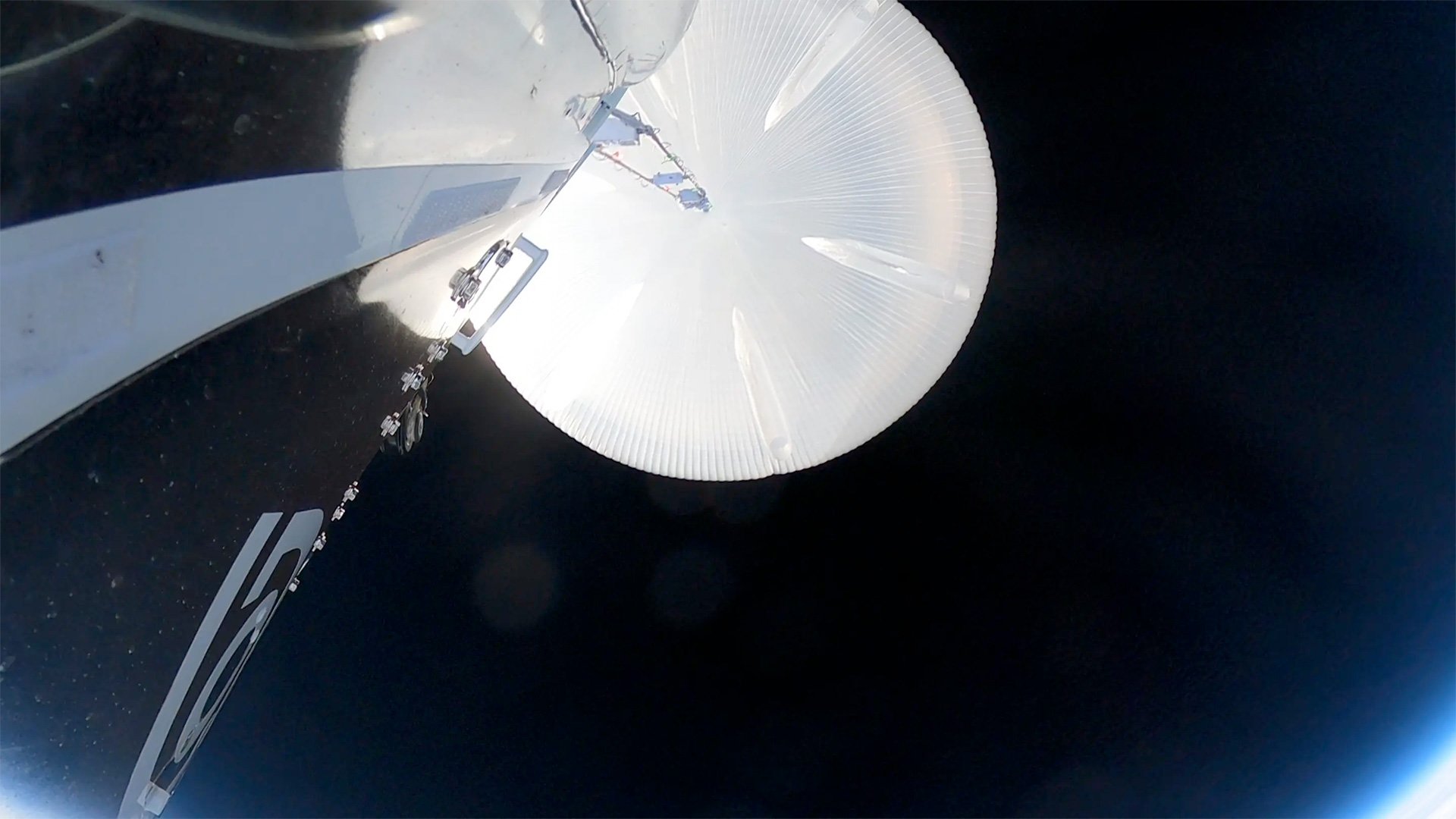
This successful test marks a major milestone for Space Perspective, bringing the company closer to its goal of making near-space travel a reality for the public.
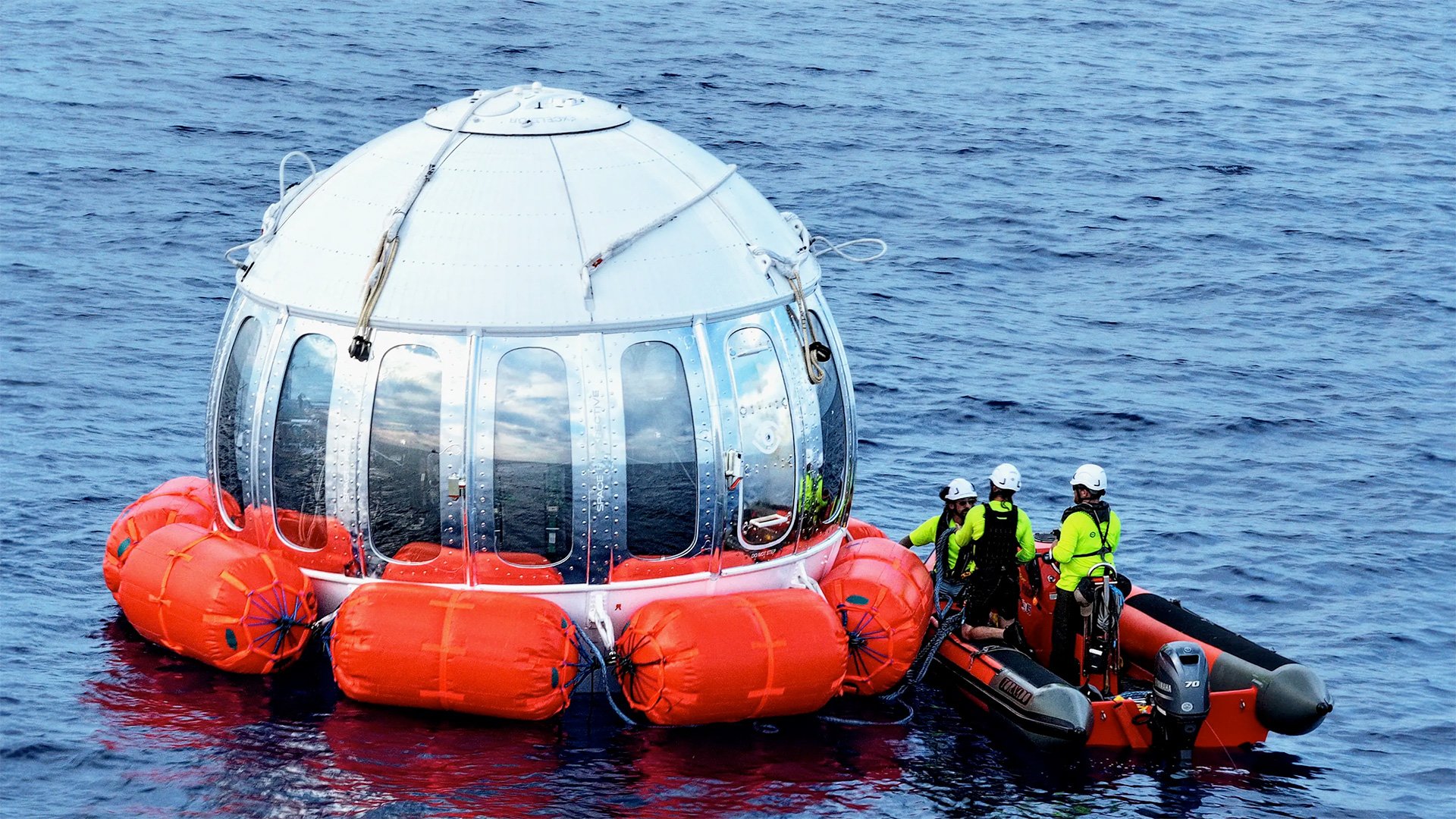
Source: Space Perspective

